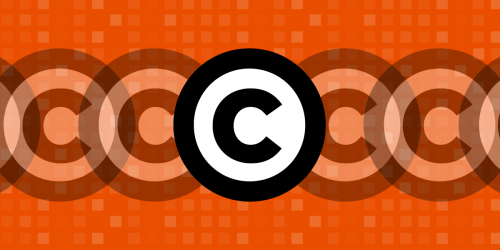Our right to express opinions online—for instance, to criticize copyright trolls and their demands for money in hopes of scaring them away—are protected by the First Amendment. The Georgia Supreme Court correctly underscored these protections in a ruling late last week about the state’s anti-stalking law. The panel overturned a trial judge’s astonishing order directing a website owner to remove all statements about a poet and motivational speaker who had a sideline business of demanding thousands of dollars from anyone who posted her prose online—a practice that had sparked plenty of criticism on the web.
The case, Chan v. Ellis, was initiated by Linda Ellis, an author of the motivational poem "The Dash," which is freely available on her website. When others repost the poem, Ellis routinely sent copyright infringement notices, offering to settle the legal dispute for $7,500. This earned Ellis notoriety on Matthew Chan’s ExtortionLetterInfo.com (ELI) a website dedicated to providing information for recipients of settlement demand letters like Ellis’ and featuring a message board used to expose alleged copyright trolls and extortion letter schemes. The site included nearly 2,000 posts about Ellis and her settlement demands, from Chan and others.
In February 2013, Ellis filed a petition for a "stalking ex parte temporary protective order," claiming that some of the posts amounted to stalking and cyber-bullying. (The message boards have been taken down, so we can’t read what the messages actually said.) A Georgia state court held that the online posts constituted "contact" with the writer tantamount to stalking and ordered removal of all posts about Ellis—not just threatening ones—in an overreaching ruling impeding freedom of expression and ignoring the legal protections afforded to intermediary publishers of web content,
The case was appealed to the Georgia Supreme Court, where, because of the important free speech concerns, the UCLA First Amendment Amicus Brief Clinic and Loyola Law School Prof. Aaron Caplan weighed in on the case on EFF’s behalf. We emphasized the free speech issues raised if "contact" under the state’s anti-stalking law was interpreted to include online statements about an individual. The Georgia Supreme Court, in an opinion that mirrored our arguments, ruled that posting criticisms of the poet wasn’t the type of "contact" the anti-stalking law prohibits because the comments were for public consumption and not sent directly to her.
"That a communication is about a particular person does not mean necessarily that it was directed to a person," the court said. "The publication of commentary directed only to the public generally does not amount to 'contact'" under Georgia’s anti-stalking law, it said.
While Ellis may not have liked what people said about her, that’s not enough to stifle publication of opinions expressed to the general public. As the court ruled, "Ellis failed to prove that Chan `contacted’ her without her consent and the trial court erred when it concluded that Chan had stalked Ellis."
EFF has called for a federal statute that would nip this type of claim against commentary on websites and blogs in the bud. A federal anti-SLAPP law would provide bloggers and website owners with a defense against expensive legal threats targeting legitimate online content, enabling them to file a request in court to get the cases dismissed quickly. At least 28 states already have such laws against strategic lawsuits against public participation, or SLAPPs. A similar law at the federal level would protect bloggers, website owners, and other creators across the nation, and discourage plaintiffs like Ellis from dragging their targets into court.
The Internet has turned into an unrivaled forum for discussion and debate, and people around the world use the Web to share information about people and businesses they don’t think are dealing fairly with others. We are pleased the Georgia court recognized this and protected free speech online instead of dangerously expanding the scope of the state’s anti-stalking law.










